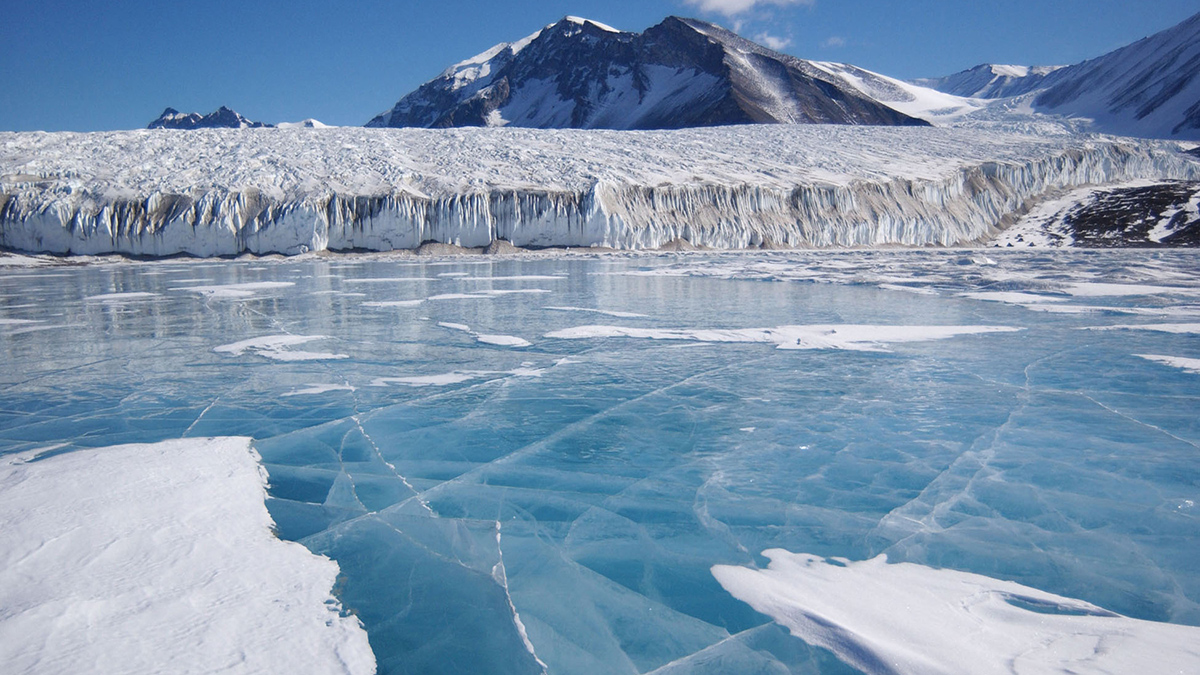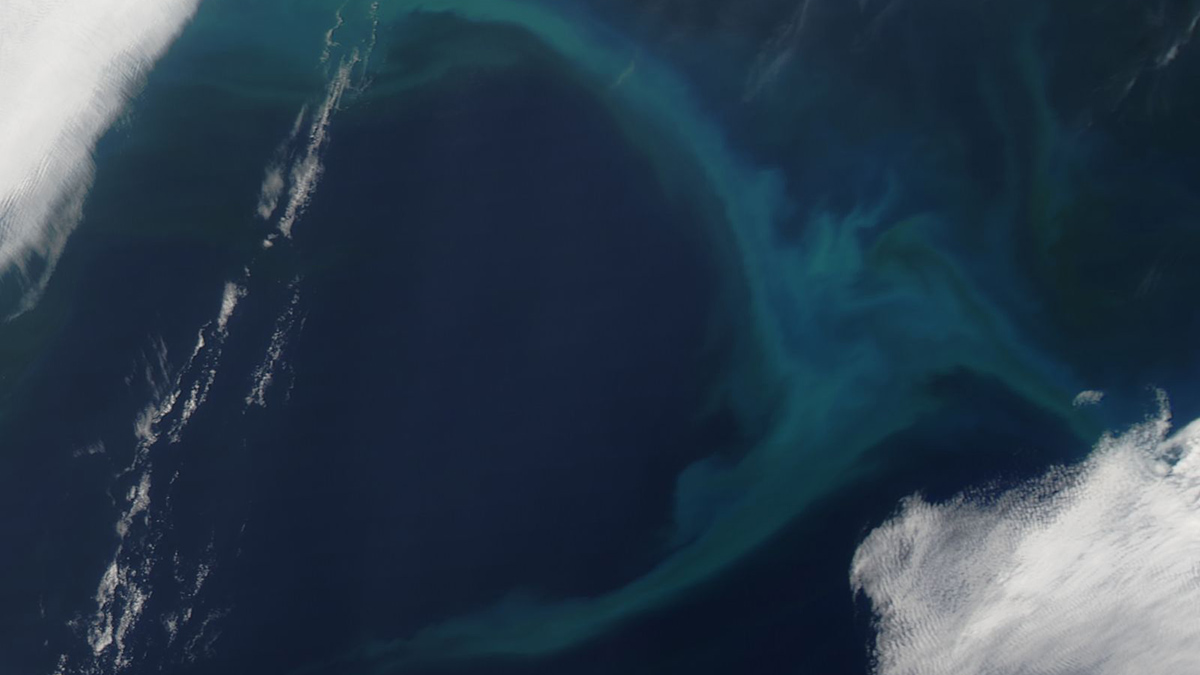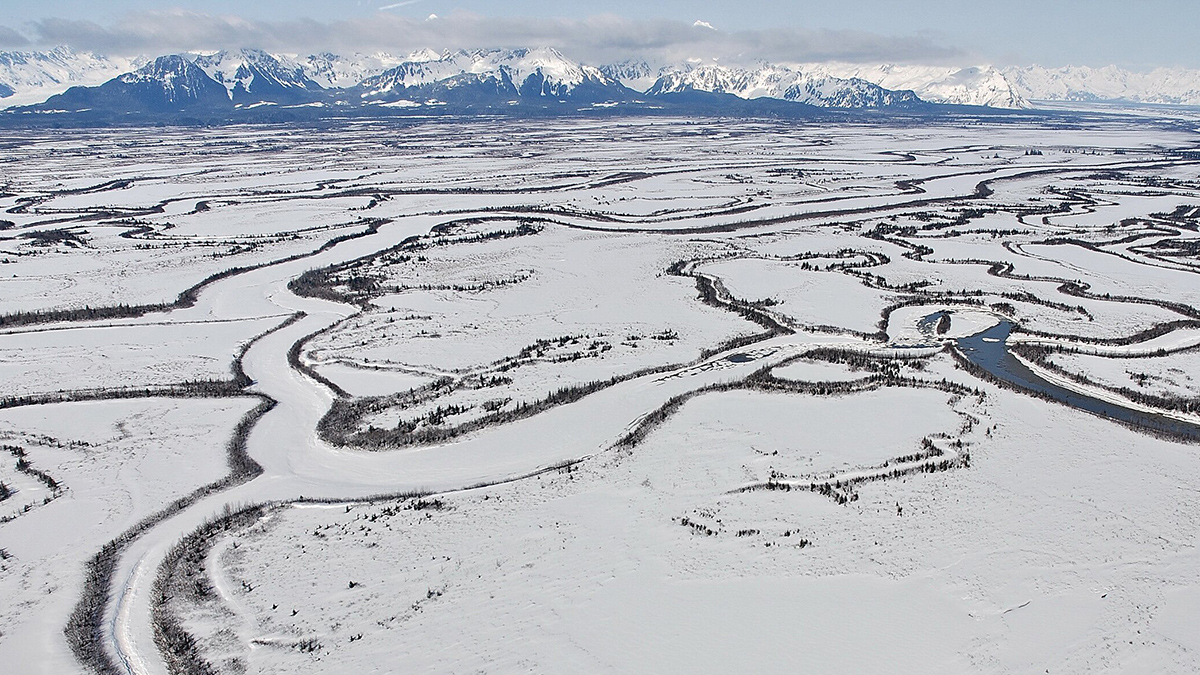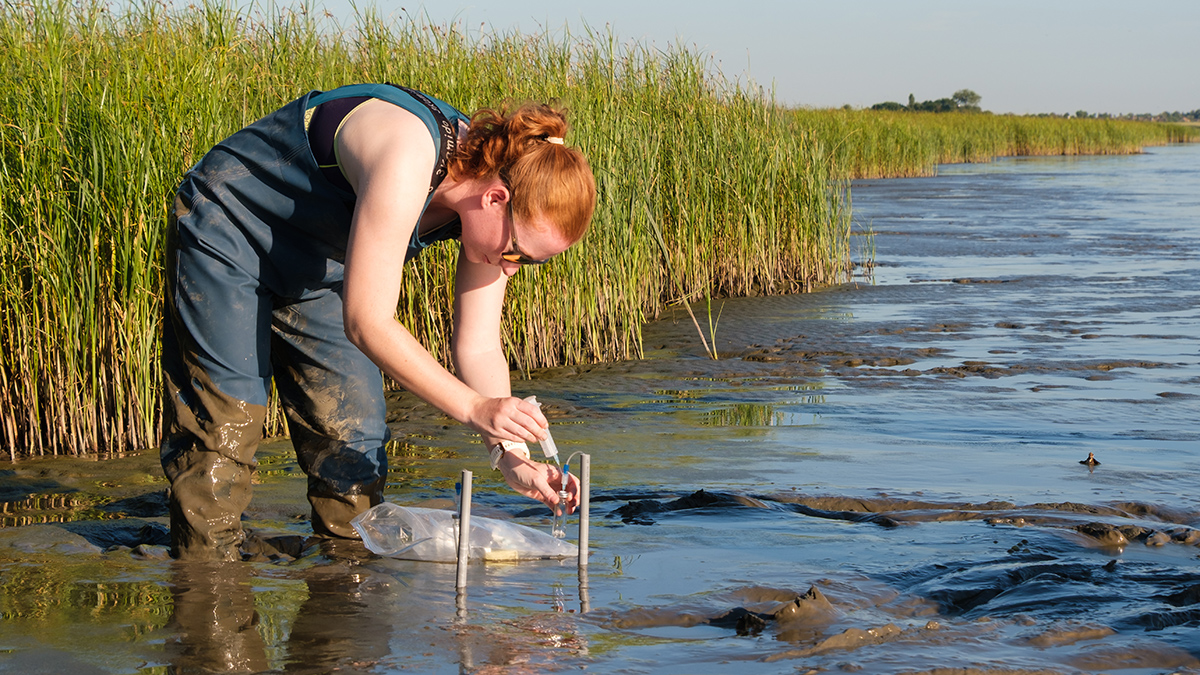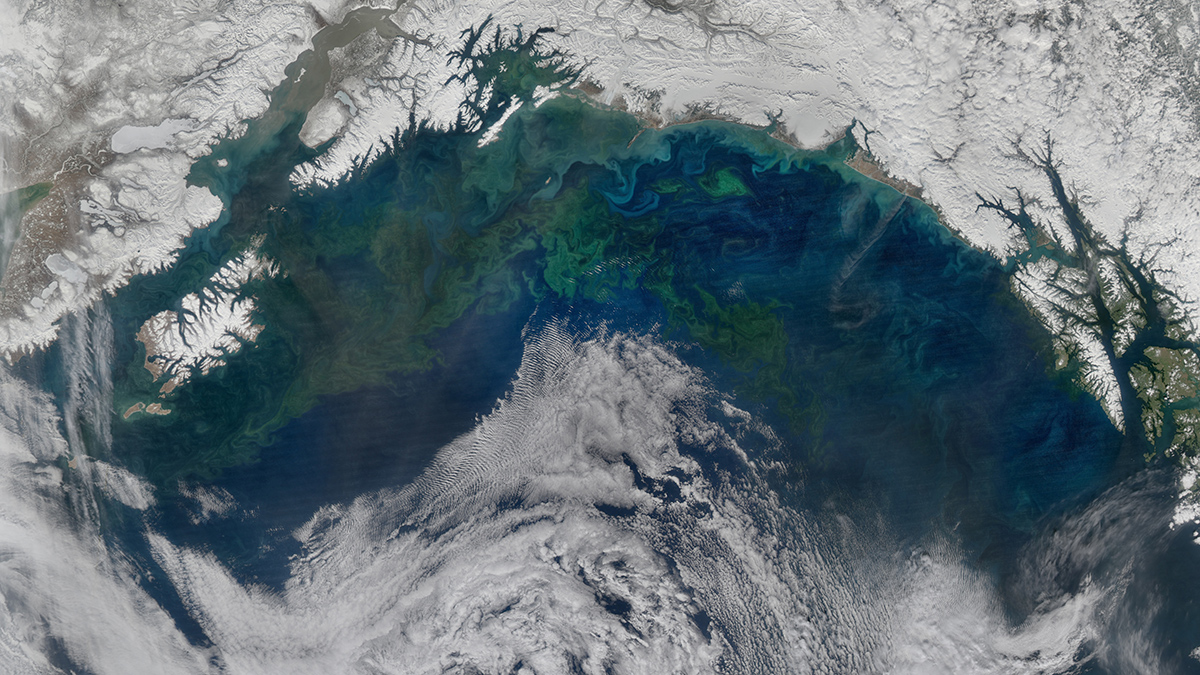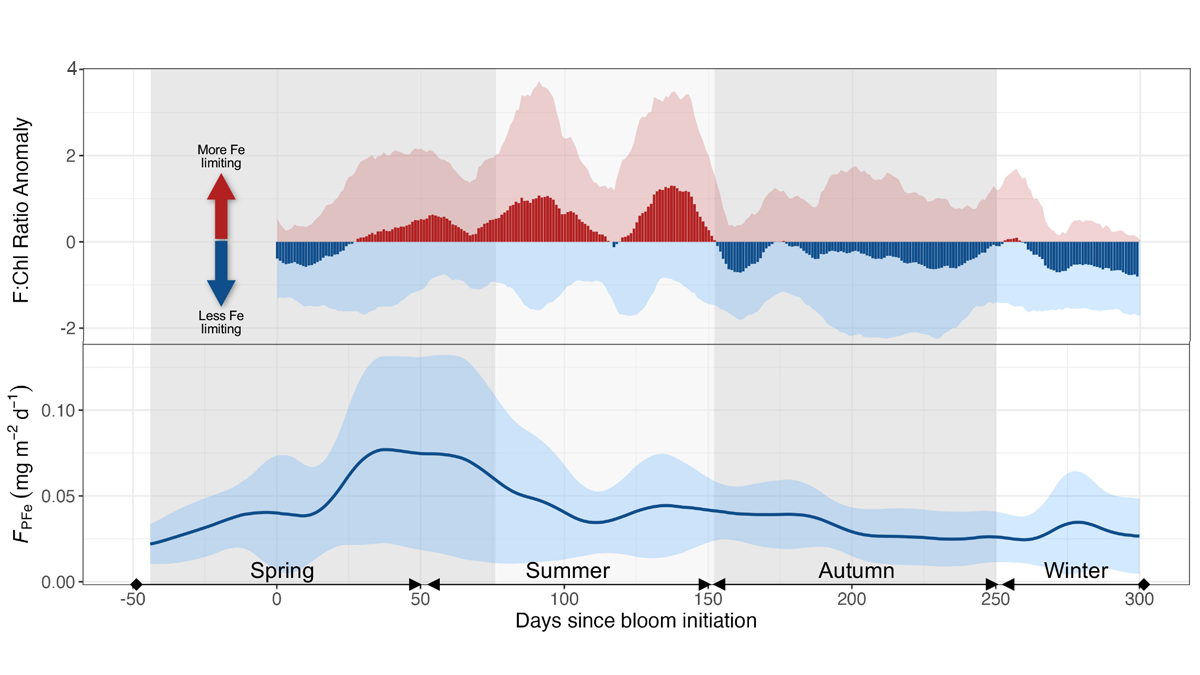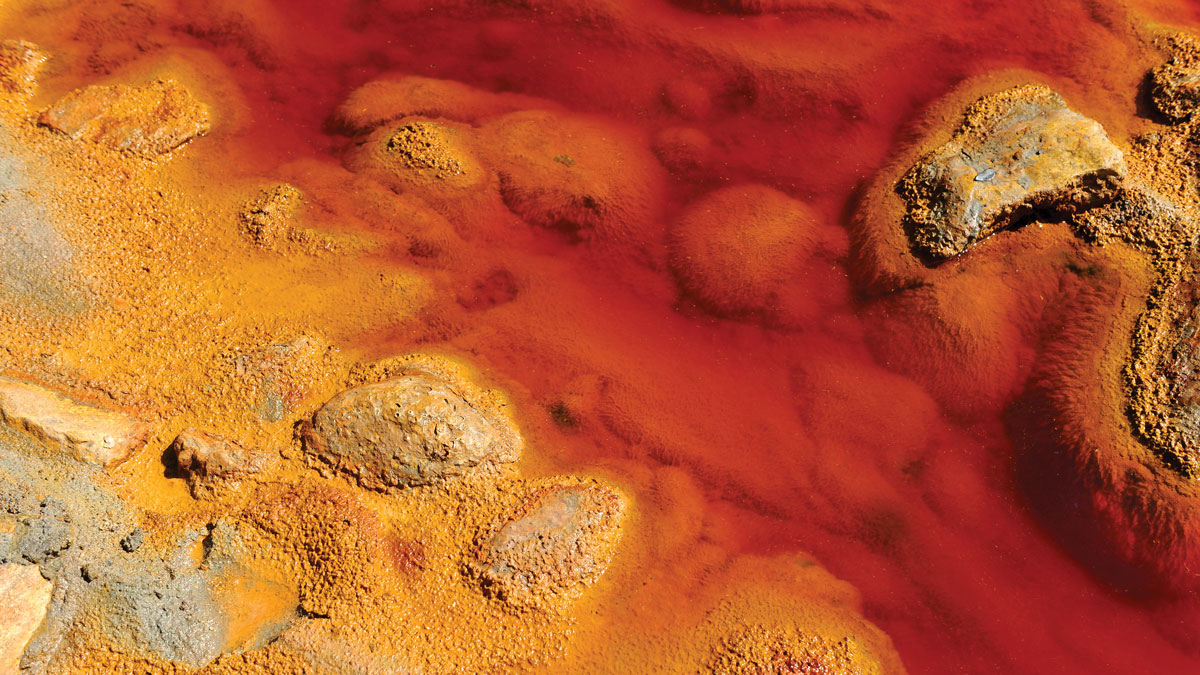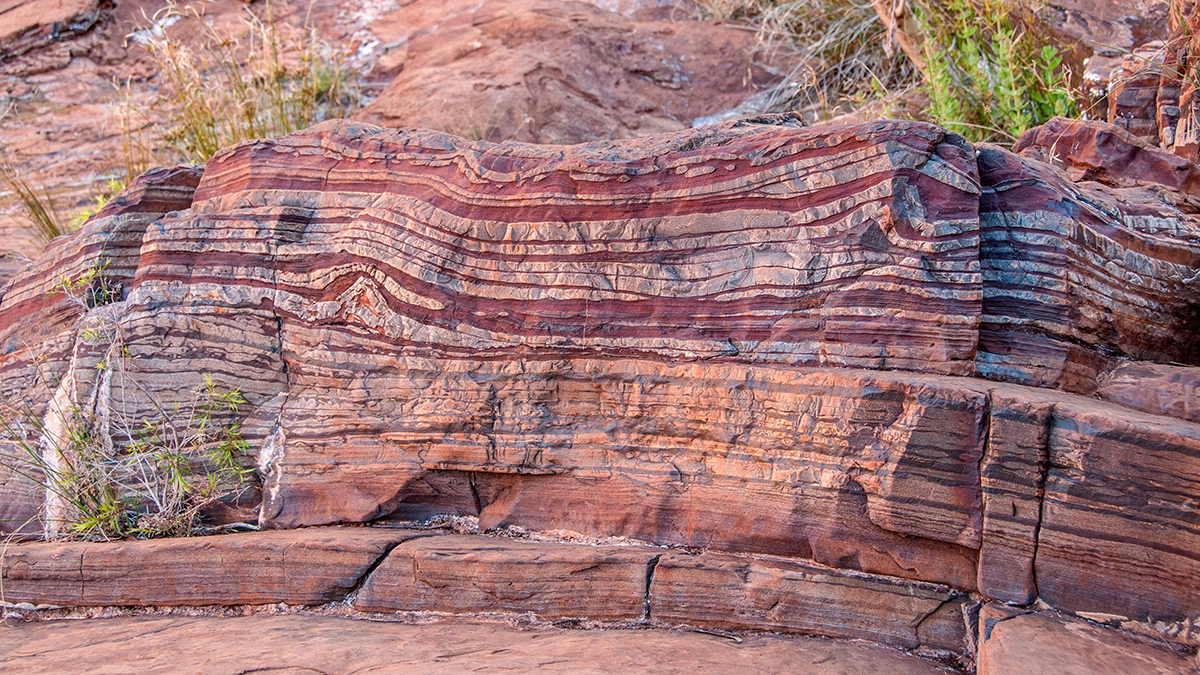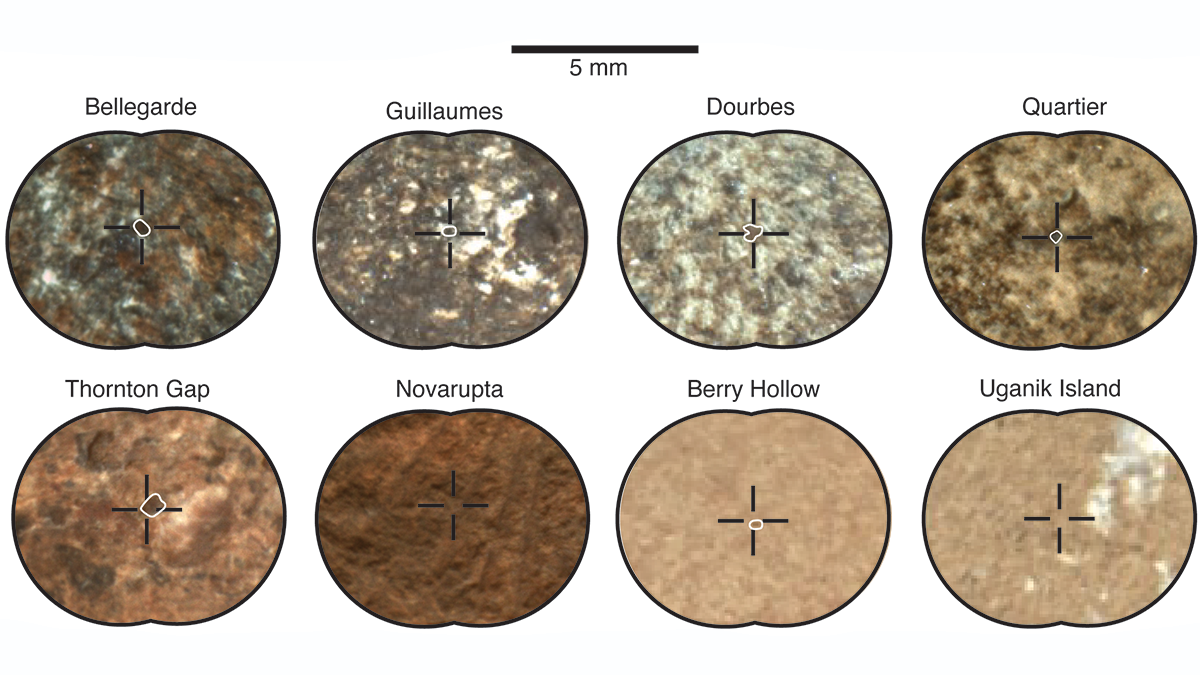These chemical oddities may explain why Earth seems to be deficient in certain elements—and could prove useful in catalysts and more.
iron
Snowball Earth’s Liquid Seas Dipped Way Below Freezing
Iron isotopes show that salty seawater pockets beneath the ice were as cold as −15°C.
Wintertime Spike in Oceanic Iron Levels Detected near Hawaii
Seasonal rainfall and runoff of sediments from the Hawaiian Islands could be responsible for the previously undetected peak.
Tectonics and Climate Are Shaping an Alaskan Ecosystem
Biogeochemical research reveals the web of forces acting on a high-latitude microbe community in the Copper River Delta.
Tracing Iron’s Invisible Transformations Just Beneath Our Feet
A new method that adds synthetic iron minerals to soils sheds light on hard-to-observe soil and sediment processes and may have a host of other applications in the Earth sciences and beyond.
Iron Emissions Are Shifting a North Pacific Plankton Bloom
Some of the iron emitted by industrial activity in East Asia is carried by winds into the North Pacific, where it nourishes iron-hungry phytoplankton.
Seasonal Iron Cycle and Production in the Subantarctic Southern Ocean
Long-term monitoring at a site in the subantarctic region south of Australia combined with ship-based observations reveals three distinct phases between cycles of phytoplankton productivity and dissolved iron.
A Planetary Perturbation Like No Other
Scientists are tackling “the most profound questions about life itself” with complex computer modeling, billion-year-old bacteria, and old-fashioned fieldwork.
Bacteria Battled for Iron in Earth’s Early Oceans
Billions of years ago, iron-oxidizing microbes may have competed for dissolved iron in the ocean, with some strains producing toxic gases that smothered their rivals.
The Future of Martian Paleomagnetism
Samples collected by the Perseverance Rover have great potential for providing insights into the history of Mars’ magnetic field.


